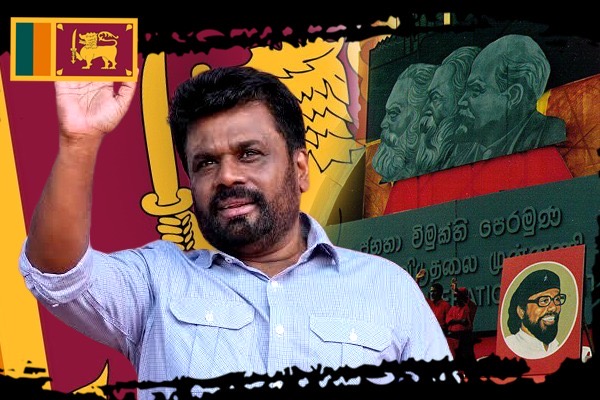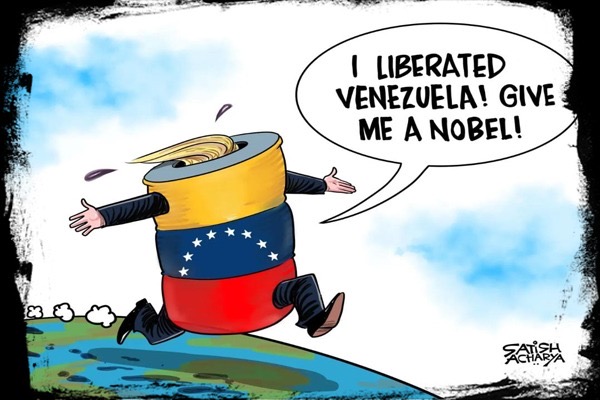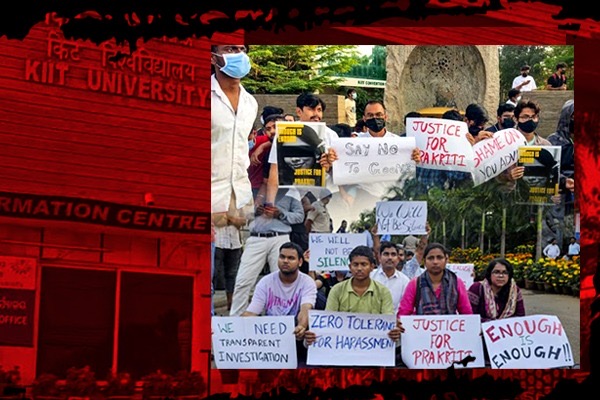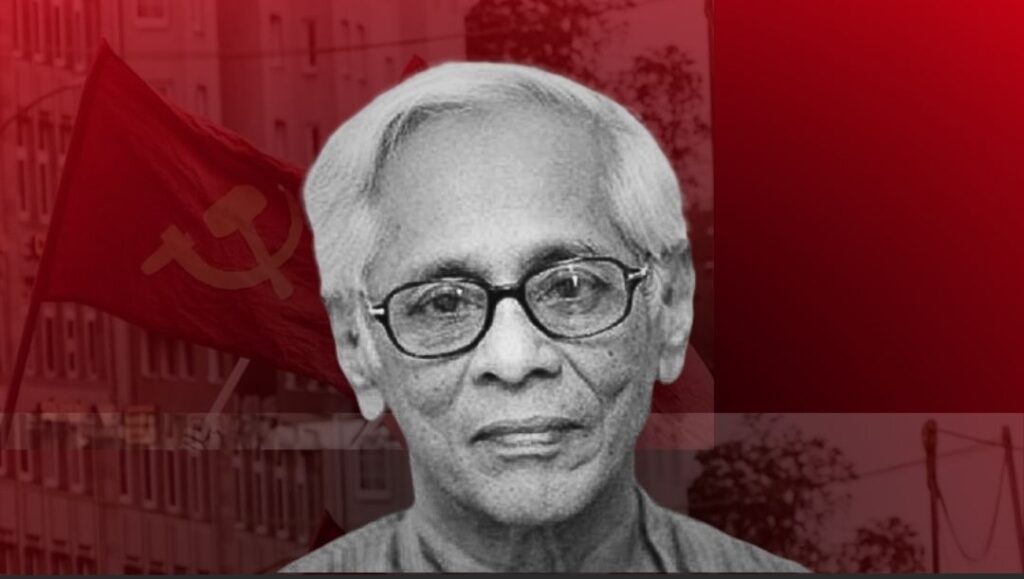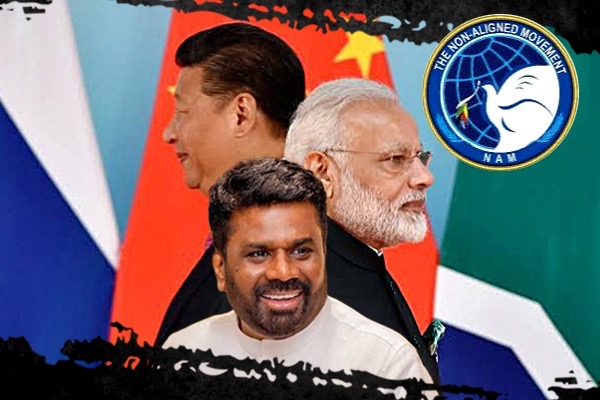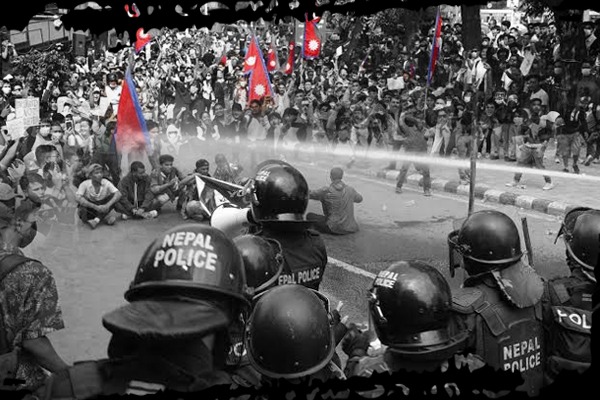Anura Kumara Dissanayake, the leader of the Janatha Vimukthi Peramuna (JVP), has recently won the presidential election in Sri Lanka, marking the country as the second in South Asia to be governed by a communist party, following Nepal. This development prompts a closer examination of what the JVP can contribute to a nation grappling with significant challenges. Established over fifty years ago, the JVP has a deep-rooted history as a Marxist political organization that primarily represents the Sinhalese community. This victory is notable as it is the first time the JVP has attained the presidency, despite its previous involvement in various governmental ministries. The party has consistently viewed India as a key player with ambitions to influence Sri Lanka.
Rohana Wijeweera, who founded the JVP in 1965, was introduced to leftist ideologies through the Communist Party of Sri Lanka and furthered his studies at the Patrice Lumumba International University in Moscow, where he interacted with leftist activists from around the world. Upon his return to Sri Lanka, he initially joined the Communist Party of Ceylon (Maoist) but later chose to dissolve it and establish a new Communist Party of Ceylon, with the goal of sparking a revolution to steer Sri Lanka towards socialism.
During this time, the JVP gained traction among many young people facing unemployment in an economy dominated by businesses from the British colonial era and an English-speaking elite in Colombo. JVP members received ideological training through a series of lectures known as “Five Lessons,” which addressed issues such as Sri Lanka’s economic challenges, the history of leftist national movements, the socialist movement, Indian expansionism, and revolutionary theory. Over time, however, the party shifted its focus from class struggle to championing the interests of the Sinhala working-class majority.
The JVP formed a brief alliance with the Left United Front, led by Sirima Bandaranaike, which included the Sri Lanka Freedom Party (SLFP), the Lanka Samajwadi Party, and the Communist Party. However, this collaboration was short-lived, as the JVP considered these groups to be part of the “bourgeois” left. In April 1971, the JVP launched a military operation against a police station, signaling the start of its revolutionary campaign. Despite the government receiving alerts about the impending attack, it was caught off guard by the scale of the operation. This situation resulted in the declaration of a state of emergency and the arrest of JVP leader Wijeweera. The Sri Lankan military faced challenges in controlling the rapidly deteriorating situation, leading to a substantial governmental response.
A Major Course Correction
In the 1990s, the Janatha Vimukthi Peramuna (JVP) aimed to overcome its past difficulties and re-entered politics under new leadership. During the 1994 parliamentary elections, the party managed to win a single seat. Initially, the JVP had opposed provincial council elections, viewing them as a result of Indian influence through the 13th Amendment, yet they chose to participate in these elections nonetheless.
The party’s presence in the political landscape expanded notably during the 2001 parliamentary elections, where it secured 16 seats, indicating a growing confidence among specific voter groups. The peak of its achievements came in 2004 when it allied with the Sri Lanka Freedom Party (SLFP)-led People’s Alliance, running on an anti-ceasefire agenda. This stance was a reaction to the 2002 ceasefire agreement brokered by Norway between the United National Party (UNP) and the Liberation Tigers of Tamil Eelam (LTTE), which many viewed as favoring the LTTE.
In 2004, President Chandrika Kumaratunga announced new elections, endorsing Mahinda Rajapaksa as the prime ministerial candidate for the United People’s Freedom Alliance (UPFA), which included the JVP. The UPFA achieved a remarkable victory, winning 105 out of 225 parliamentary seats, with the JVP contributing 39 seats, marking its most significant electoral achievement. However, the JVP later exited the cabinet due to conflicts over the allocation of tsunami relief aid involving the LTTE, although it continued to support the government and backed Rajapaksa in the 2005 presidential election.
Following the end of the war, the JVP’s prominence began to wane. President Mahinda Rajapaksa rose to power, recognized for his role in achieving a military victory over the LTTE in May 2009. Concurrently, various Buddhist nationalist parties started to surface, vying for the political influence that the JVP once held. In 2008, the party experienced significant internal conflict, leading to a major division.
In 2015, Mr. Dissanayake formed a coalition called the NPP, joining forces with 25 other groups, including civil society and women’s organizations. Currently, the JVP contests elections under the NPP name, a strategy seen by some as an effort to rebrand and move away from its violent past. Mr. Dissanayake has described the NPP as a movement aimed at national liberation.
Mass uprising that shaped the political landscape of Sri Lanka
In March 2022, a mass uprising against the Gotabaya Rajapaksa administration erupted in Sri Lanka, driven by escalating economic hardships. Citizens began facing power outages and shortages of essential items, including fuel, as inflation soared to an alarming 50% annually. This unrest culminated in protests in the capital, Colombo, in April, which quickly spread throughout the nation. The country found itself unable to secure enough fuel for critical services like public transportation and medical vehicles due to a lack of foreign currency reserves necessary for imports. By May 2022, Sri Lanka made history by defaulting on an interest payment for its foreign debt for the first time. At that point, the nation owed approximately $7 billion to China and around $1 billion to India.
Following the end of its civil war in 2009, Sri Lanka opted to prioritize its domestic market over expanding foreign trade. This decision resulted in low export revenues while import costs continued to rise. Currently, Sri Lanka imports $3 billion more than it exports annually, contributing to its foreign currency crisis. In late 2019, the country had $7.6 billion in foreign reserves, but this figure plummeted to about $250 million. Additionally, in 2019, Mr. Rajapaksa implemented significant tax cuts, which led to a loss of over $1.4 billion in government revenue each year. As foreign currency shortages became critical in early 2021, the government attempted to address the issue by banning chemical fertilizer imports, urging farmers to switch to locally sourced organic alternatives. This policy, however, resulted in widespread crop failures, forcing Sri Lanka to rely on imported food, further exacerbating its foreign currency deficit.
Initially, the protests began as small neighborhood candlelight vigils, which eventually evolved into significant gatherings at the Galle Face seafront in the city. Over time, various opposition parties, including the National People’s Power (NPP) and the Janatha Vimukthi Peramuna (JVP), along with splinter groups such as the Frontline Socialist Party and the Inter University Students’ Federation, joined the demonstrations at Galle Face. The participation of these groups, coupled with some violent incidents, provided the government, led by President Ranil Wickremesinghe, with a rationale to suppress the protests.
In the aftermath, the JVP and NPP’s stance against the International Monetary Fund (IMF) agreement, which proposed the privatization of public sector enterprises, increased utility costs, and higher taxes—measures deemed detrimental to the populace—garnered them significant support and acclaim. They have also taken a firm stand against the privatization of national assets to foreign entities. During 2020-21, they were particularly vocal against the proposal to sell a 49% stake in the East Container Terminal at Colombo Port to the Adani group, which ultimately led the Gotabaya Rajapaksa administration to retract a tripartite agreement with India and Japan regarding the terminal’s development. Additionally, they raised concerns about the wind farm agreement with Adani and the collaboration with India to enhance the oil tank farm in Trincomalee. The JVP has consistently opposed the Indian Oil Corporation’s operations and expansion in Sri Lanka since its entry in 2002, and in 2017, despite its perceived closeness to China, it protested against the sale of Hambantota Port to Chinese interests.
Recently, however, the JVP has acknowledged the importance of recognizing India as Sri Lanka’s undeniable neighbor and a significant political and economic hub. Although there have been previous interactions between the JVP and Indian officials, this marked the first occasion when JVP leader Mr.Dissanayake had been formally invited to Delhi as representatives of an opposition party before electing to the office.
What lies next for Dissanayake led JVP?
Anura Kumara Dissanayake, despite a controversial history, has the potential to inspire the public to envision a brighter future and work towards restoring stability in the country. He faces the daunting challenge of revitalizing an economy that has been in decline for several years. As the Janatha Vimukthi Peramuna (JVP) identifies itself as a Marxist party, it must prioritize the welfare of the working class, especially since exiting the International Monetary Fund (IMF) is not a viable option at this time. The previous administration secured a $3 billion loan from the IMF, in addition to a $600 million loan from the World Bank. They proposed to generate funds for debt repayment through the restructuring of state-owned enterprises and the privatization of the national airline. Recently, Mr. Dissanayake indicated that his government is prepared to renegotiate the IMF agreement while minimizing the impact on the populace, a significant responsibility to undertake. He views the Sri Lankan crisis as a byproduct of neoliberal economic model.
In a recent interview, Mr. Dissanayake shared his desire to avoid being caught in a rivalry between India and China, viewing both nations as important allies. He also expressed a wish to sustain relationships with the European Union, the Middle East, and Africa. This stance suggests that Sri Lanka is moving towards an independent and neutral foreign policy.
In recent years, the Janatha Vimukthi Peramuna (JVP) has undergone a significant transformation in its public persona, adopting more centrist views on class-related matters, which marks a departure from its previous positions. Historically critical of India, the JVP is now working to strengthen its ties with India while still maintaining its relationship with China. For Sri Lanka, it is essential to pursue an independent foreign policy in the current geopolitical climate to benefit its citizens. The shifting class dynamics within the JVP will play a crucial role in shaping the party’s future trajectory and its influence on the country. Additionally, the JVP has a vital role in promoting unity among the diverse ethnic communities in Sri Lanka. Although its Sinhala Buddhist nationalist image has helped in rebranding the party and gaining public support, it is imperative that the JVP avoids exclusivity during this critical time when the general populace and working class are striving for the opportunities that were previously denied to them. Initiating consultations and dialogues with the Tamil community is essential, and efforts must be made to resolve ongoing conflicts. The rights and autonomy of the Tamil people should be respected and protected.

